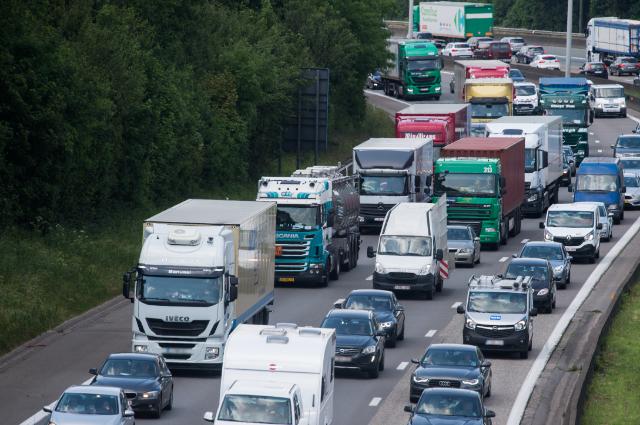EU Commission Proposes 2030 Zero Emissions Target and 90% Emissions Reductions for New Trucks by 2040

|
Listen to this story:
|
The European Commission has proposed ambitious new CO2 emissions targets for new heavy-duty vehicles (HDVs) from 2030 onwards. These targets will help to reduce CO2 emissions in the transport sector – trucks, city buses, and long-distance buses are responsible for over 6% of total EU greenhouse gas (GHG) emissions and more than 25% of GHG emissions from road transport. These strengthened emissions standards would ensure that this segment of the road transport sector contributes to the shift to zero-emissions mobility and the EU’s climate and zero pollution objectives.
The Commission proposes phasing in stronger CO2 emissions standards for almost all new HDVs with certified CO2 emissions, compared to 2019 levels, specifically:
- 45% emissions reductions from 2030;
- 65% emission reductions from 2035;
- 90% emissions reduction from 2040.
See related article: EU Lawmakers Approve Zero CO2 Emissions for New Cars and Vans Effective in 2035
To stimulate faster deployment of zero-emission buses in cities, the Commission also proposes to make all new city buses zero-emission as of 2030.
In line with the European Green Deal and REPowerEU objectives, this proposal will also have a positive impact on the energy transition, by lowering demand for imported fossil fuels and enhancing energy savings and efficiencies in the EU’s transport sector. It will provide benefits for European transport operators and users by reducing fuel costs and total cost of ownership, and ensure a wider deployment of more energy-efficient vehicles. It will also improve air quality, notably in cities, and the health of Europeans.
Moreover, this is a key sector to support the European clean tech industry and boost international competitiveness. The EU is a market leader in the production of trucks and buses and a common legal framework helps to secure that position for the future. In particular, the revised standards provide a clear and long-term signal to guide EU industry investments in innovative zero-emission technologies and boost the rollout of recharging and refuelling infrastructure.












